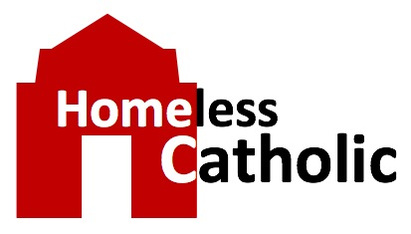The golden calf: A lesser god
In the name of ‘spirituality,’ we celebrate time devoted to ourselves alone. Jerobo’am proposed a god to be worshiped who took the form of a golden calf. There are more common substitutes for the worship of God.
Image by ian kelsall
A lesser god
By Steve Hall
Memorial of Saint Scholastica, Virgin
I Kings 12:26-32; 13:33-34
Mark 8:1-10
As marvelous as was the reign of King Solomon, it could not last forever.
When he died, one of his sons, Rehobo’am by name, became King of the territory that had been united by David and Solomon. What he seems to have learned from the governance of his father and his youthful associates was not conducive to the continuation of a United Kingdom.
“And the young men who had grown up with him said to him, "Thus shall you speak to this people who said to you, 'Your father made our yoke heavy, but please lighten it for us'; thus shall you say to them, 'My little finger is thicker than my father's loins. And now, whereas my father laid upon you a heavy yoke, I will add to your yoke. My father chastised you with whips, but I will chastise you with scorpions.'" (1 Kings 12:10-11)
The Kingdom, once united, now split. Rehobo’am maintained his throne in the South, but it was comprised only of those from the tribes of Judah and Benjamin. The tribes in the North separated, uniting together under Jerobo’am. It was under these newly divisive circumstances that we are brought to the readings of today.
Decades earlier King David had ruled that sacrifice could be offered only in the capital city of Jerusalem. His decree and the subsequent practice of the people had become well established during the years that followed. Consequently, the new King of the northern tribes had a legitimate concern:
“If now this people go up to offer sacrifices in the temple of the LORD in Jerusalem, the hearts of this people will return to their master, Rehobo’am, king of Judah, and they will kill me."
He therefore devised the plan we hear about today. He established his own places of worship and sacrifice, but this time in territory under his rule. But there was another, more important change: his proposed god to be worshiped took the form of a golden calf. Jerobo’am had taken the easy way out.
The symbol of the golden calf was an ancient one. When the one-time slaves had escaped Egypt and found themselves at the foot of Mt Sinai waiting for Moses to come down, they became restless. Within a brief period they had made a golden calf. “And he received the gold at their hand, and fashioned it with a graving tool, and made a molten calf; and they said, ‘These are your gods, O Israel, who brought you up out of the land of Egypt!’” (Exodus 32:4)
Such worship had continued among the descendants of the previous residents of the Kingdom of David and Solomon just as it had survived in the centuries before. For the people of this new kingdom of Jerobo’am it was, therefore, familiar as was the pagan practices of worship that accompanied it. As was noted earlier, however, for Jerobo’am this was the easy way out: set aside the faith you have known. Substitute for that loss something familiar and more pleasurable. The rest will take care of itself.
Jerobo’am may have been an early practitioner of this art of substitution. He certainly was not the last. We, today, are skilled in the practice. Keeping the Lord’s day Holy has been set aside. The number of familiar substitutes is enormous. In the name of ‘necessity’ commerce has become an habitual practice for the weekend. In the name of ‘relaxation’ sports has taken control of the gathering of people in communion. In the name of ‘spirituality’ we celebrate time devoted to ourselves alone. Further examples could be offered but these three are the most common substitutes for the worship of God.
Every weekend is the time to ask: Is Jerobo’am my middle name?

